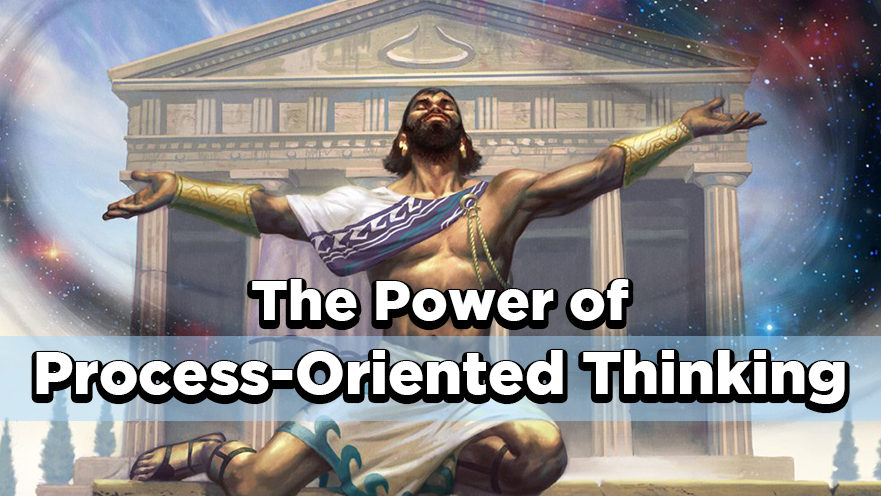Magic is a game of variance. It’s probably something you’ve heard a million times before – I know I have. But in the heat of the moment, when your opponent finds the perfect one-outer on the top of their deck or you draw what must be your twelfth land in a row, it can be easy to forget, and for the frustration to set in.
But Magic is also a game that inspires us to gun for that elusive Grand Prix Top 8, for that trophy that we can hoist up over our heads to prove that we do actually belong and that we can hang with the big dogs. And those goals can be hard to achieve in a game with so much inherent variance.
Grand Prix Vegas
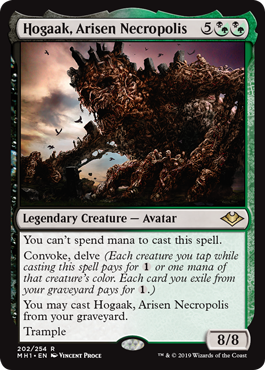
Another Grand Prix Vegas has come and gone, and with it, another opportunity to practice what I preach: to test, prepare and tune, to keep my emotions in check, and to remember that variance will affect all my matches, for better or worse. I played the best deck (the now-defunct Hogaak), tuning it for the mirror to a point that a friend said I had the best Hogaak list in the room. On Day One, my preparation paid off, and I wrapped up the day with my best finish to date, an astounding 7-1!
Day Two was a whole different ball of wax. I rattled off losses in Rounds 9, 10, and 11 across two days of play. Going from 7-1 to 7-4 can easily cause a downward spiral, especially when you feel like you’ve done everything right. But, as we’ve established, Magic is a game of variance.
Stopping the Spiral
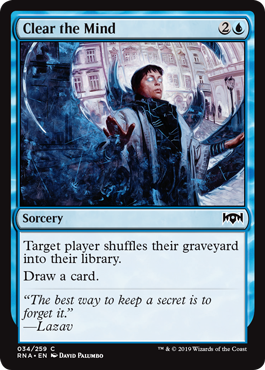
I knew I had prepared well and was happy with my deck choice overall. So, instead of letting those losses get to me, I decided I’d rather shake them off and continue trying to play my best. That’s obviously an oversimplification, but truth be told, not by much. There is a crossroads that we face when we start getting frustrated: we can either continue to be upset and let emotions affect our play, or we can just move on. And moving on can be hard work: It requires you to recognize that you’re starting to become upset and actively work on righting the ship.
For me, centering myself after things stop going my way involves reminding myself that Magic sure is a game of variance. When you focus on long-term improvements rather than short-term wins, you can override those feelings of frustration. Almost two years ago, I said that by viewing my skill as a Magic player as an investment with long-term returns, the results of individual tournaments begin to matter less and less. Since then, I’ve taken those words to heart, and I went on to put up five Day Two performances in a row (including three cash finishes). None of these results were the big wins I’ve been hunting for, but I’m still proud of my accomplishments so far, and I have proof that my process is working.
Avoiding Results-Oriented Thinking
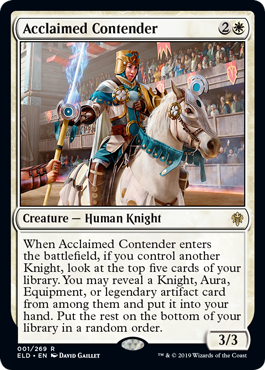
Having a big tournament finish that I can point to and say “Hey, I’m actually kinda okay at this game,” is a perfect example of results-oriented thinking. In the end, while that finish would mean a lot, it’s ultimately just that: a result. In a game where everything from deck matchups to opening hands to who gets to go first is out of our control, results simply aren’t the best measure of skill or success.
When I get frustrated with the game, I try to dig deep and understand why I’m feeling upset. If it’s because of elements of variance, I recognize that this is what I signed up for when I started playing Magic competitively. Then, I try to determine which elements of the game were within my control. Should I have mulliganed more aggressively? Did I get bad match-ups all day because I chose a deck that was poorly positioned? These are all opportunities to learn and improve in the future.
In Conclusion
The results you want are unlikely to come from picking up a deck and playing it once. But they are more likely to come when you’ve played hundreds of decks, or when you’ve played one deck hundreds of times. They come from playing your best, learning from your mistakes, and applying those learnings the next time you try a new deck or play in another tournament. So while I could be sad that I picked up five losses at Grand Prix Vegas, I’ve chosen to be proud to have won two more matches after rattling off those three losses in a row. I’m proud of my gameplay, and I look forward to continuing to learn and grow as a Magic player. And, of course, continuing to trust in the process.
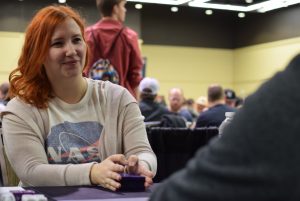
A Spike at heart, Chantelle spends her free time prepping for tournaments, working toward the ever-elusive Mythic Championship, and championing other competitive ladies. She’s a combo aficionado and seasoned aggro deck player, and Standard and Modern are her preferred formats. Growing and improving as a player, both technically and in her mental game, are of the utmost importance to her.

